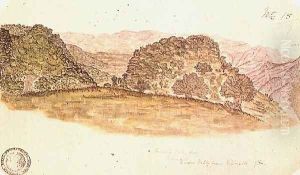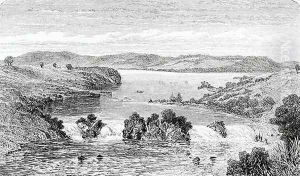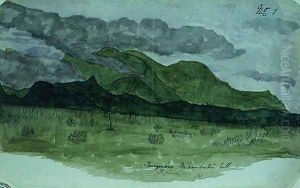John Hanning Speke Paintings
John Hanning Speke was not an artist in the traditional sense of painters or sculptors, but rather an explorer and officer in the British Indian Army who made significant contributions to the discovery and mapping of Africa. Born on May 4, 1827, in Buckland, Somerset, England, Speke was part of a family with a long military tradition. He was educated in the British school system before embarking on a career in the military, which eventually led him to become an explorer.
Speke's explorations were primarily focused on the East African region. He is most famously known for his discovery of Lake Victoria, which he correctly identified as the source of the Nile River. This discovery was made during his second African expedition, which took place from 1856 to 1859, and he led a third expedition to further explore the Nile from 1860 to 1863. During these expeditions, Speke faced numerous hardships, including hostile encounters with local tribes, diseases, and the difficult terrain of uncharted territory.
His claims regarding Lake Victoria were initially met with skepticism, particularly by his fellow explorer Richard Francis Burton, who had accompanied him on his first African expedition. A public debate between Speke and Burton was scheduled to take place on September 16, 1864, but tragically, Speke died from a gunshot wound on September 15, 1864, in what was ruled as an accidental shooting while hunting. The circumstances of his death have been a matter of speculation, with some suggesting the possibility of suicide, though this remains unproven.
Speke's contributions to the exploration of Africa and the understanding of its geography were significant, and his work played a crucial role in the eventual colonization of the continent by European powers. Despite the controversies surrounding his claims and his untimely death, Speke is remembered as a key figure in the age of great African explorations. His writings and maps continue to be of historical interest for those studying the era of imperial expansion and the exploration of Africa.


